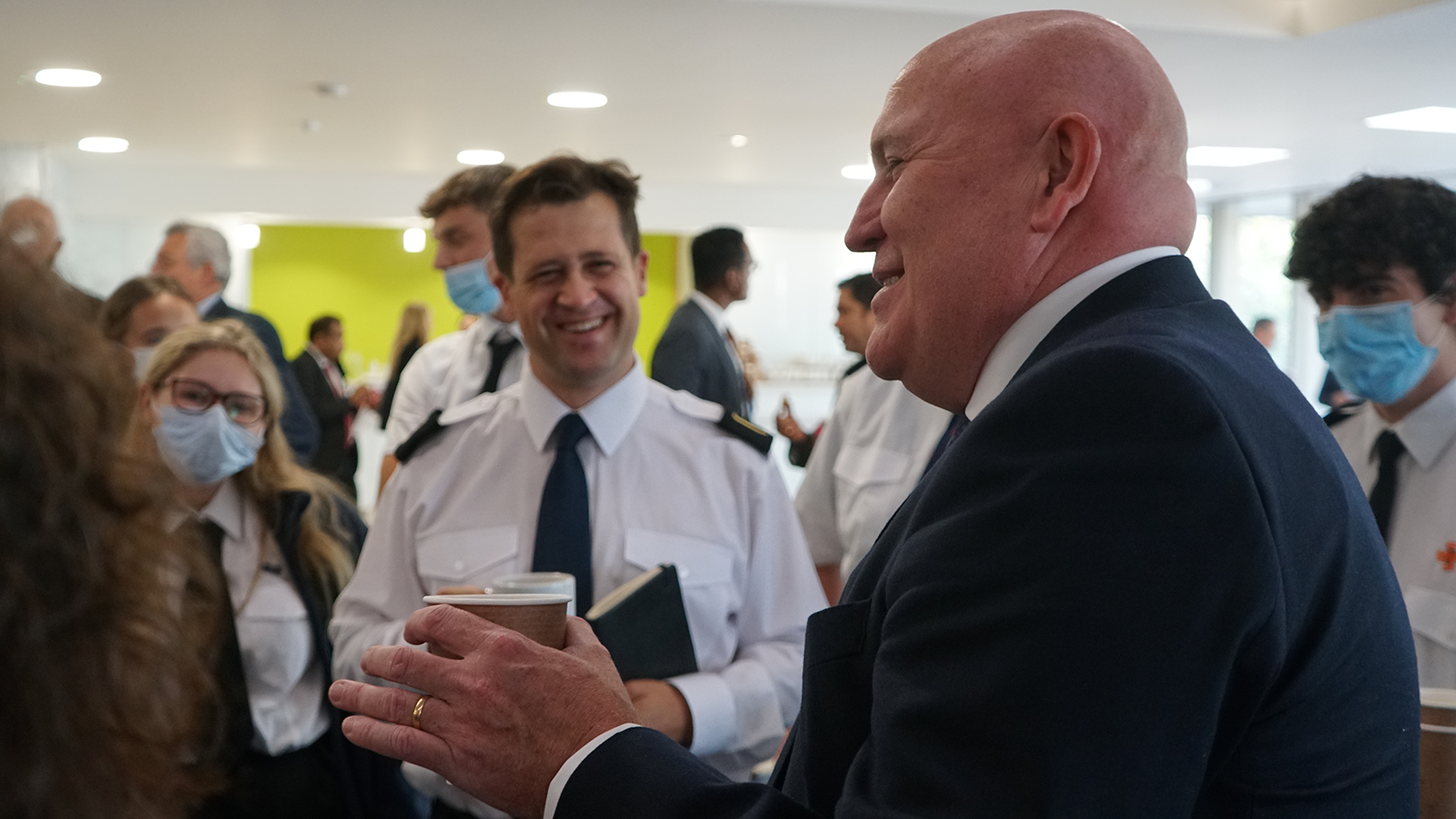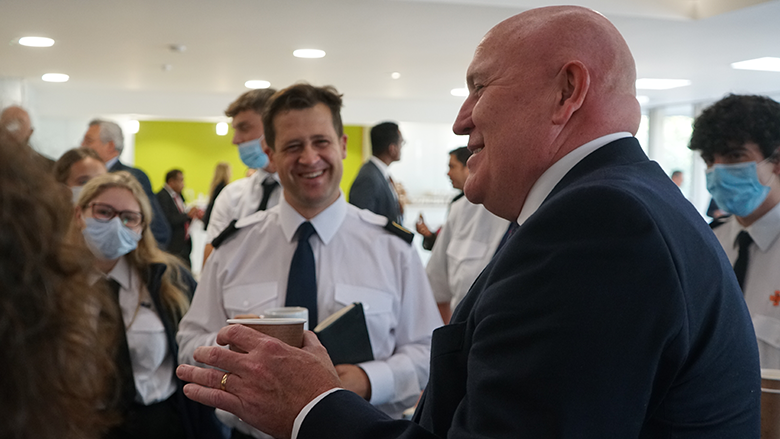
A clear, common purpose is emerging in the shipping industry for stronger action on climate change ahead of COP26 in Glasgow this week.
The Global Maritime Forum and the International Transport Workers’ Federation (ITF) have signed an agreement to cooperate in “problem solving and identifying concrete actions” to speed up decarbonisation in the maritime sector.
The Global Maritime Forum brings together high level leaders from across the maritime industry to shape the future of global seaborne trade and to increase sustainable long-term economic development and human wellbeing. The ITF is a global union federation with more than 300 maritime union affiliates in over 130 countries.
The pact outlines the importance of worker, corporate and investor leadership uniting to push for meaningful action. The immediate focus of the agreement is decarbonisation and just transition, but it will serve as the basis for co-operation on other strategic issues in the future. As part of the memorandum the ITF will be inviting affiliates to sign up to the Global Maritime Forum’s Call to Action.

“To reach zero by 2050, the shipping industry must pull its weight. This agreement shows leadership and movement from the employers, workers and their unions to do what’s needed to get us to zero,” said ITF General Secretary Stephen Cotton.
“A just transition means concrete measure to ensure that workers’ voices, expertise and ambitions to be at the centre of decision-making in transition plans for the industry. The Global Maritime Forum understand that, and that involving workers from the outset is crucial for the rapid change required in curb emissions,” said Cotton.

Johannah Christensen, CEO at the Global Maritime Forum said: “We are excited about what this new agreement means for our industry’s ability to step up to the task of decarbonising shipping by 2050. We recognise the incredible strength to be had in focusing the ideas, energy and investment of both our members on the climate crisis,”
We welcome the launch of the ITF’s principles for a just transition. There is so much common ground. Training and re-training, maintaining health and safety when it comes to new fuels, and of course ensuring good working conditions for seafarers that are commensurate with their central role in global supply chains,” said Christensen.
“When it comes to moving shipping to zero carbon, Global Maritime Forum will be leading this transition – right alongside our workforce and their representatives in the ITF. We will do this transition justly, and in partnership.”
END
Notes:
- Seafarers call for shipping to set ambitious climate targets now if its future is to be sustainable (ITF - 29/10/2021)
- ITF’s Sustainable Shipping Position Paper (29/10/2021)
- 'Getting to 5%’: action plan for delivering zero-emission fuels in shipping (GMF - 20/10/2021)
- GMF-led Call To Action for Shipping Decarbonization
About the ITF: The International Transport Workers’ Federation (ITF) is a democratic, affiliate-led federation of transport workers’ unions recognised as the world’s leading transport authority. We fight passionately to improve working lives; connecting trade unions and workers’ networks from 147 countries to secure rights, equality and justice for their members. We are the voice of the almost-20 million women and men who move the world.
About the Global Maritime Forum: The Global Maritime Forum is an international not-for-profit organization committed to shaping the future of global seaborne trade to increase sustainable long-term economic development and human wellbeing.


Post new comment